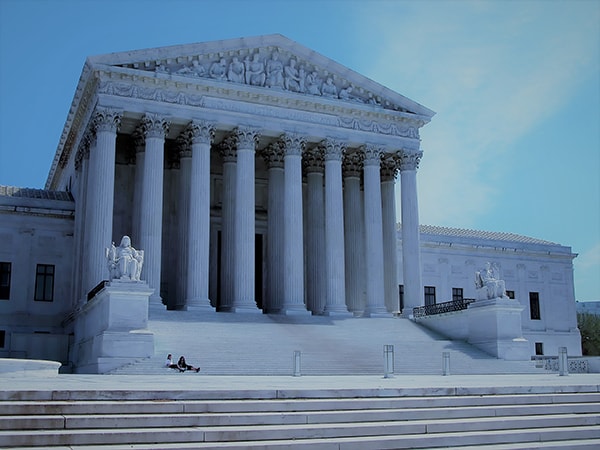Top Federal Appeal Lawyers: Expert Legal Support for Your Federal Appeal
Debunking the Refine of Federal Appeals: What You Required to Know
Navigating the intricate realm of government appeals can typically look like traversing undiscovered waters for those not familiar with the process. Understanding the nuances of appellate court jurisdiction, the ins and outs of filing a notice of charm, providing an engaging brief, and making an influential dental debate are essential parts that can considerably impact the result of a case. By unraveling the layers of intricacy bordering federal charms, individuals can obtain a more clear insight right into the mechanisms that control this essential phase of the legal system.
Comprehending Federal Appeals Refine
Digging right into the complex realm of the federal charms process reveals a structured and methodical trip with the judicial system. Federal allures work as an important device for evaluating decisions made by lower courts. Comprehending this procedure is important for any individual included in legal process at the federal degree.
The procedure typically begins with an event dissatisfied with a reduced court's judgment filing a notice of charm. This triggers a review by a greater court, where a panel of courts assesses the lawful arguments offered by both celebrations. Briefs detailing the lawful thinking behind each celebration's setting are sent, and dental debates may be heard to make clear complicated problems.
The appellate court's choice is based on a comprehensive exam of the lower court's proceedings and the arguments provided. Once the appellate court gets to a choice, it can verify, turn around, remand, or change the reduced court's judgment, supplying clarity and finality to the legal conflict.
Appellate Court Jurisdiction Clarified
Appellate court jurisdiction refers to the scope of cases that a certain appellate court has the power to assess and choose upon. Unlike test courts that listen to instances for the initial time, appellate courts are limited to examining decisions made by reduced courts.
Appellate courts have jurisdiction over specific kinds of situations, typically those entailing legal errors, step-by-step issues, or concerns of regulation as opposed to accurate conflicts. The territory of appellate courts is normally laid out in statutes and regulations that govern the court system. Comprehending appellate court territory is crucial for events entailed in the charms process as it determines whether a case is qualified for review and the degree to which the appellate court can intervene in the lower court's choice.
Filing a Notice of Charm
The preliminary step in starting the federal appeals process entails submitting a Notification of Charm with the appropriate appellate court. This essential file officially alerts the court and the various other parties included in the case that the appealing event intends to seek a review of the lower court's choice. Filing a Notice of Allure is a rigorous step-by-step need that sets the appellate procedure in movement.
When preparing the Notice of Allure, it is necessary to ensure compliance with the details rules and standards of the appropriate appellate court. federal crime lawyer. The document needs to generally consist of info such as the instance name, the lower court's name, the day of the judgment being appealed, and a succinct declaration indicating the premises for the allure

Briefing and Dental Disagreement
In the appellate procedure, presenting composed briefs and participating in oral disagreements play critical functions in promoting for the appealing event's placement before the appellate court. Briefs are thorough legal files that lay out the celebrations' arguments, legal authorities, and evaluation supporting their positions. These created entries give the court with a comprehensive understanding of the truths of the case, the appropriate legislation, and why the appealing party believes the reduced court's choice should be reversed.
Following the submission and evaluation of the briefs, dental debates supply the celebrations an opportunity to further clarify their placements, deal with any kind of questions the appellate courts might have, and emphasize essential points from their composed briefs. Oral arguments are a chance for the attorneys to convince the judges with verbal campaigning for and feedbacks to questions from the bench.
Both the created briefs and oral disagreements are important elements of the appellate process, enabling parties to present their instance extensively and compellingly prior to the appellate court. - federal appeal lawyers
Receiving the Appellate Court Choice
The appellate court's choice is typically provided in a created layout and describes the court's verdicts federal sentencing attorney on the lawful problems presented, the thinking behind their choice, and the judgment provided. The time framework for getting the appellate court's choice can differ, however courts make every effort to supply timely resolutions. Whether the appellate court affirms, turns around, or remands the lower court's decision, comprehending the implications of the ruling is important for all celebrations included in the appellate procedure.
Conclusion
Finally, the federal charms process is a facility yet crucial action in looking for justice. Understanding the appellate court jurisdiction, filing a notice of appeal, preparing briefs, and presenting oral arguments are all important elements of this process. Eventually, getting the appellate court decision can offer clearness and resolution to legal disputes. It is essential to navigate the government allures procedure with persistance and interest to detail to attain a reasonable result.
As we advance from understanding the government appeals procedure to dissecting the details of appellate court jurisdiction, a basic facet comes to light relating to the authority and restrictions of these greater courts in the legal landscape. Appellate court jurisdiction refers to the range of instances that a specific appellate court has the power to assess and make a decision upon. Unlike test courts that hear situations for the first time, appellate courts are restricted to evaluating choices made by reduced courts. Recognizing appellate court territory is important for events included in the charms process as it determines whether a situation is qualified for testimonial and the extent to which the appellate court can interfere in the lower court's decision.
